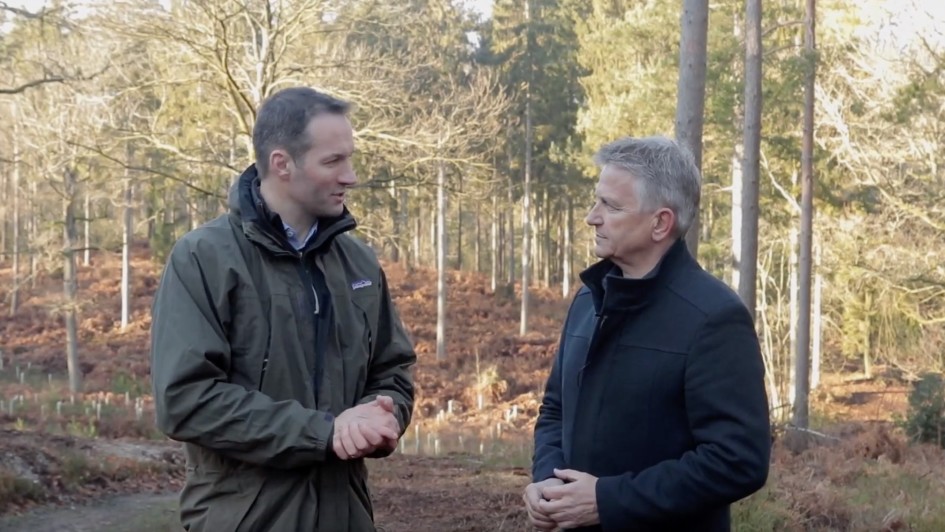This year, I’m making a series of short videos, exploring hopes and fears for the future of our forests.
The second in the series was filmed on a crisp sunny day as I talked with Dougal Driver, of Grown in Britain, about why we manage woodlands.
Dougal made some really interesting points.
He said trees are special and wonderful and need to be looked after. He talked about different techniques of woodland management, and compared growing trees to growing carrots – they need to be thinned out sometimes.
“If you leave these trees to grow on their own they’ll grow too close together, and sunlight won’t get to the forest floor. In woods like this, which are well managed, the trees have room to grow, they get fatter, and that provides us with timber that we can saw and use. It’s really important to to make the most of this fantastic material as opposed to some other materials which are high carbon and a high energy input – and whilst we produce this material from these trees, we get biodiversity benefits, and people can come and enjoy these forests for health and well-being, so it’s a real win-win situation.”
When talking about hopes and fears for the future of our forests, Dougal said “I hope that we can take that interest from the public and use our skills and knowledge to make them understand that it’s not just a question of buying a tree, sponsoring a tree and putting it in the ground and leaving it and expecting the planet to be saved through just doing that…”
He suggested that maybe we should take the opportunity to relook at the way we incentivise land management. That instead of only talking about more trees and planting new areas – we could say “well if you’ve already got woodlands on your land, and you want to get subsidy from government to plant some more – maybe there’s a connection…” to encourage woodland owners to manage what they’ve already got! Only 40% of our woodland is managed, and it’s important we get more of those woods back into management.
“My fears – well we are ravaged by pests and diseases and biosecurity is a real issue, and ash has been devastated by an imported disease – so I hope we can get a grip on our biosecurity.”
Dougal also hopes that that the interest from the public in planting trees produces “more woods like this for our grandchildren – that would be amazing!”
Find out more about the importance of bringing woodlands back into management on Dougal’s Grown In Britain blog: https://www.growninbritain.org/bringing-uk-woodlands-back-management-time-get-tough/
I want to thank Dougal for taking the time to talk with us for this series about the future of our forests.
I’m interested to hear what you think.
Comments are open below, and you’ll find me on twitter @TomBarnesWood and @VasternTimberUK

